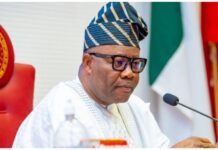 COMMUNIQUE ISSUED AT THE END OF A ONE DAY CAPACITY DIALOGUE SESSION ORGANIZED BY THE CIVIL SOCIETY LEGISLATIVE ADVOCACY CENTRE (CISLAC) WITH SUPPORT FROM FEDERAL PUBLIC ADMINISTRATION REFORM (FEPAR) ON THE COST OF GOVERNANCE IN NIGERIA HELD AT BOLTON WHITE HOTELS, ABUJA ON MONDAY, 19TH AUGUST, 2013.
COMMUNIQUE ISSUED AT THE END OF A ONE DAY CAPACITY DIALOGUE SESSION ORGANIZED BY THE CIVIL SOCIETY LEGISLATIVE ADVOCACY CENTRE (CISLAC) WITH SUPPORT FROM FEDERAL PUBLIC ADMINISTRATION REFORM (FEPAR) ON THE COST OF GOVERNANCE IN NIGERIA HELD AT BOLTON WHITE HOTELS, ABUJA ON MONDAY, 19TH AUGUST, 2013.
PREAMBLE:
The Civil Society Legislative Advocacy Centre (CISLAC) http://www.cislacnigeria.net/ organized a one day dialogue session on the cost of governance in Nigeria with support from Federal Public Administration Reform (FEPAR). The one-day dialogue drew over 80 participants from Nigeria Labour Congress (NLC), Civil Society, Media, Diplomatic community as well as Development partners. The Dialogue featured Mrs. Oby Ezekwesili as
the lead presenter and other discussants. After exhaustive deliberations on the issue, the following observations and recommendations were made:
OBSERVATIONS:
There are convergences of opinion that:
1. The recurrent expenditure of 44%, overhead cost of 14% and debt service of 16% (82% in all) continue to outstrip capital votes of 18% which is considered detrimental to National development;
2. There is no effective planning, prudent and judicious use of public expenditure which
has in turn created leakages, wastage, corruption, duplication of projects and poor management of budget;
3. Nigeria has failed to invest more in critical sectors that promote increased opportunity for her citizens to creatively engage in productive, income generation and wealth creating activities which has profiled poverty increase from 17million people in 1980 to 112 million people in 2010 – despite five rounds of oil boom;
4. The Orosanye report initiated to reverse this trend which recommended the rationalization , merger, and outright scrapping of some Ministries, Department and Agencies of government may also end up on the shelves and never implemented;
5. Nigeria is ranked at the bottom of developing countries with particular comparative
analysis with countries it began developmental quest with within the same period as well as shared same colonial history and the only thing that made the difference is manufacturing;
6. The Country uses 15.2% to service debt while the National Assembly has allocated to
itself over =N=1trillion since 2005 to the detriment of its economic development
which adds to the incremental cost of governance;
7. The high cost of governance in the country must not be limited only to expenditure,
the revenue side needs to be effectively interrogated as there are huge loses accruing to the country by the day considering that there is poor policing of the country’s oil companies; and
8. CSOs are not effective enough in sustaining issues that are germane to national
development such as education, fuel subsidy and the issue of 46,821 ghost workers found in MDAs syndrome in the civil service, just as it has done to interrogate NEITI and BPP.
RECOMMENDATIONS:
1. That CSOs should engage more in evidence based advocacy and put forward a clear and coherent demand for a mini-National Summit on the cost of governance in Nigeria where the recommendations of the Orosanye report will be discussed against the backdrop of their pros and cons;
2. That government must ensure that transparent budget tracking, execution and effective public finance management system is put in place to curb further waste and conduit for corruption;
3. That government should not continue to pretend but scrutinize how resources are allocated and spent across the arms and the levels of government to rescue the astronomic figure of poverty in Nigeria;
4. That all stakeholders must begin to put pressure on government to ensure implementation of the Orosanye report and strengthen the initiative that has exposed ghost workers in the various MDAs of government;
5. That there should be a thorough diagnosis for diversification of the economy by encouraging manufacturing through private sector investment to provide a robust revenue index and not the kind of economic growth–joblessness dichotomy as is currently the case;
6. That policy adjustment should not be
taken for granted by the government as the maturation of democracy would be detrimental until certain changes are made to arrest huge expenditure profiles;
7. That CSOs and Government must strengthen its activities within frame of the operations of the IOC’s to curtail oil theft and illegal bunkering that has rendered the oil and gas sector even more vulnerable; and
8. That CSOs must educate the citizens and mobilize them to engage in the trajectory of policy regime and debates that would translate into growth and development of the country’s economy.
CONCLUSION:
Participants expressed their appreciation to CISLAC for embarking on the dialogue session, and to FEPAR for providing support to this all important program channeled at reducing the cost of governance in Nigeria. The media and diplomatic community fully demonstrated readiness to collaborate with politicians, public/civil servants and CSOs to sustain the engagement with the aim of moving the Nation forward.
SIGNED:
Auwal Ibrahim
Musa (Rafsanjani)
Executive
Director
Civil
Society Legislative Advocacy Centre
Abuja
Dauda Garuba
Nigeria
Program Coordinator
Revenue
Watch Institute
Abuja



